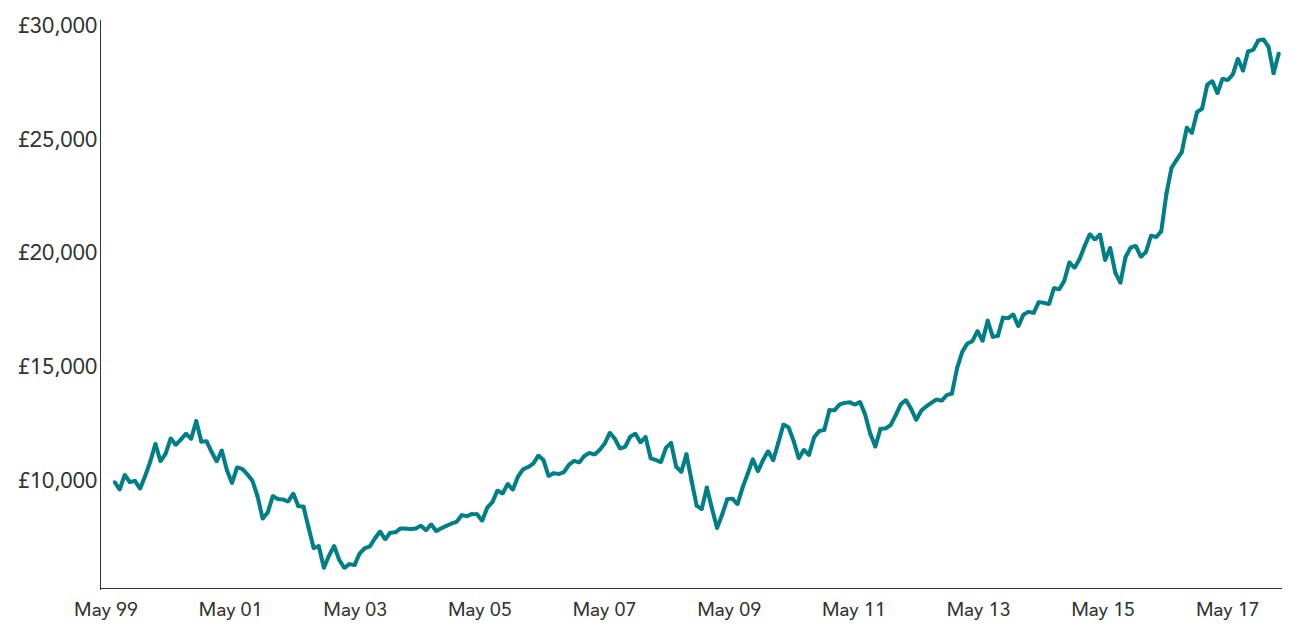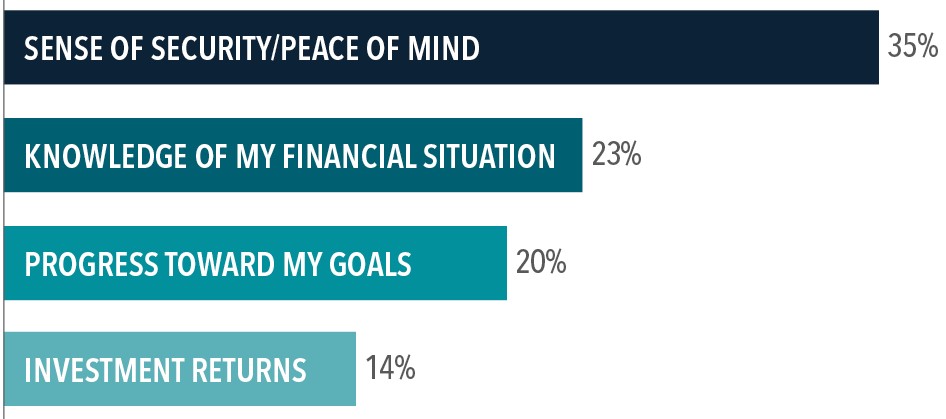The relentless stream of news about markets can cause investors to feel anxious about their financial security – but with the support of a trusted adviser, you can hold firm.
Even the most experienced investors can find themselves responding emotionally when being bombarded with data and headlines presented as having an impact on their financial wellbeing. A selection of headlines from what is generally referred to as the ‘lost decade’ recall several periods when market participants could have been moved to question their approach:
• May 1999: Dow Jones Industrial Average closes above 11,000 for the first time
• December 1999: FTSE 100 hits all time high of 6,930.20
• March 2000: Nasdaq Stock Exchange Index reaches an all-time high of 5,048
• April 2000: In less than a month, nearly a trillion dollars of stock value evaporates
• October 2002: Nasdaq hits a bear-market low of 1,114
• September 2005: House prices post record gains
• February 2008: Northern Rock falls into state ownership following credit crisis
• September 2008: Lehman files for bankruptcy, Merrill is sold
• May 2009: UK sovereign debt is downgraded to negative
While these events are now a decade or more behind us, they still serve as an important reminder for investors that markets can be volatile. Reports of a market high may trigger elation, only to be followed by despair following a market fall. It can be hard to do nothing at such times – but making investment decisions based on an emotional response is generally unwise. Remember too that, despite these ups and downs, if an individual had hypothetically invested £10,000 in global developed equities in May 1999 and stayed invested, that investment would be worth approximately £28,000 today.*
Exhibit 1. Hypothetical growth of wealth in the MSCI World Index, May 1999–March 2018

*In GBP. As measured by the MSCI World Index (net div), May 1999-April 2018. A hypothetical £10,000 invested on 30 April 1999, and tracking the MSCI World Index (net div), would have grown to £28,033.46 on 30 April 2018. It is not possible to invest directly in an index.
If you are a retail investor, this document has been provided to you by your financial adviser, who can help explain its contents. MSCI data @ MSCI 2018. All rights reserved. Not representative of an actual investment. Indices are not available for direct investment; therefore, their performance does not reflect the expenses associated with the management of an actual portfolio.
When faced with short-term noise, it’s easy to lose sight of the potential long-term benefits of staying invested. This is why adopting a long-term perspective is so important: it can help you look beyond the headlines and change how you view market volatility.
Holding your nerve during periods of uncertainty is also supported by having a suitable asset allocation that is aligned with your willingness and ability to bear risk. It also helps to remember that without risk there would be no real rewards: if returns were guaranteed, you would not expect to earn a premium. Creating a portfolio that you as an investor are comfortable with, understanding that uncertainty is a part of investing, and sticking to a plan may ultimately lead to a better investment experience and the achievement of financial goals.
The value of a trusted adviser
As with many aspects of life, we can all benefit from a bit of help in reaching our goals. The best athletes work closely with a coach to increase their odds of winning, and many successful professionals rely on the assistance of a mentor or career coach to help them manage the obstacles that arise during a career. Why? They understand that the wisdom of an experienced professional, combined with the discipline to forge ahead during challenging times, can keep them on the right track.
The right financial adviser can play this vital role for an investor. A financial adviser can provide the expertise, perspective, and encouragement to help you create a suitable investment portfolio, and then keep you focused on your destination – even when times are tough. A recent survey conducted by Dimensional Fund Advisors found that, along with progress towards their goals, investors place a high value on the sense of security they receive from their relationship with a financial adviser.
Exhibit 2. How do you primarily measure the value received from your adviser?

Source: Dimensional Fund Advisors. The firm surveyed almost 19,000 investors globally to help advisers who work with Dimensional better understand what is important to their clients.
Having a strong relationship with an adviser could help you be better prepared to live your life through the ups and downs of the market. That’s the value of discipline, perspective, and calm. That’s the difference the right financial adviser can make.
For further information, please
contact us.